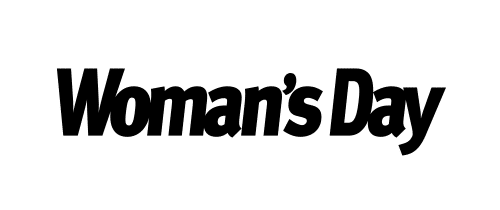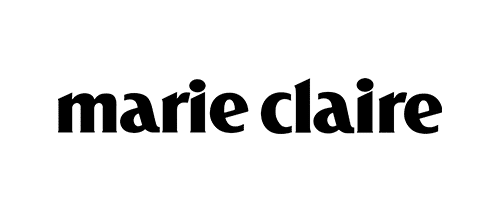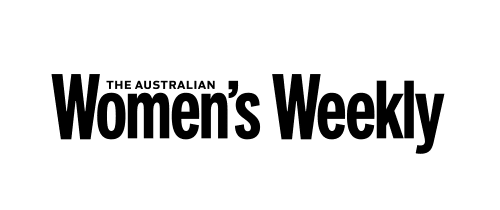Historically, power has been a position dominated by men. But, over the last decade, the word power is becoming more and more synonymous with women.
While women are still underrepresented in leadership roles, more women are building their own businesses and finding ways to carve out a seat at the decision-making table. Not only that, but women are actively redefining the word power in their own unique ways and changing the narrative of what it means to be a powerful and capable leader.
From empathetic, kind and progressive world leaders to Indigenous women having their voices heard and women taking up space in traditionally male-dominated industries, we’re taking a look at some of the incredible women reimagining what power means for women.
The history behind power
Throughout history, power has been tightly held by the patriarchy, with men calling the shots, making policy decisions as well as leading companies and countries across the globe.
Gender stereotypes have formed as a result of seeing power defined in traditional ‘masculine terms’. These gender norms and definitions of power have trickled down into almost every aspect of life from the family to the workplace and politics too.
Most women have encountered unequal power dynamics at one point or another. If you’ve ever been spoken over by a man at work, been told you’re too bossy for simply asking for what you need, or experienced your pain not taken seriously by male doctors, you’ve likely experienced masculine power dynamics at play.
In fact, 37% of female leaders have experienced a coworker getting credit for their ideas, in comparison to 27% of men and women are 2x times more likely than men to be mistaken for junior workers.
How women are redefining power in 2023
From the courageous women in Iran demanding freedom to young women like Greta Thunberg demanding climate justice, power is being redefined by women across the globe each day.
Power is also being redefined in the workplace, with some calling it ‘The Great Breakup.’ Increasingly, women are demanding more from their workplace and they’re prepared to walk away to get what they deserve.
Research from LeanIn.Org has shown that women in leadership positions are switching jobs in unprecedented numbers to get their needs met. These numbers are far higher than men in leadership roles.
Women are clearly taking back their power and disrupting traditional gender and power roles and dynamics. Women are also seeking out roles in male-dominated positions like management roles at a faster rate than men which has increased to 34.5% in 2021 from 28.3% in 1998.
5 women who are forging their own path as powerful leaders
From female politicians redefining what it means to be a powerful leader to trailblazing Indigenous women fighting for improved health outcomes for Indigenous communities and even female founders helping women take their sexual power back, these five women are forging their own unique path as powerful leaders.
1. Jacinda Arden
You’ve definitely heard of Jacinda Arden before – she’s the youngest Prime Minister in New Zealand’s history.
Jacinda Arden who was just 37 when elected as Prime Minister in 2017 has been redefining power and leadership through her empathetic and progressive approach to leadership. She’s also been redefining what it means to be a working mum in modern society, becoming only the second elected head of government to give birth while in office.
Arden balances strength and empathy in her leadership approach, completely shifting the qualities associated with being a leader. In the wake of the Christchurch Shooting, Arden acted swiftly to ban military-style weapons just six days after the attack, and alongside other ministers took a 20% pay cut to show solidarity with those impacted by the Covid-19 pandemic
2. Susan Moylan-Coombs
The founding director of The Gaimaragal Group, Susan Moylan-Coombs has been working to establish and facilitate the voice of Aboriginal Elders in social spaces and empower young people to reach their full potential.
Susan has had an extensive career, working as the Executive Producer of ABC’s Indigenous Programs Unit and Head of Production of the National Indigenous Television.
Using her lived experience as part of the Stolen Generations, Susan works with First Nations Australian communities, mainstream organisations and government organisations to improve health and wellbeing outcomes in local communities.
3. Ngozi Okonjo-Iweala
Ngozi Okonjo-Iweala is both the first woman and the first African official to take on the role of Director-General of the World Trade Organisation (WTO). Ngozi Okonjo-Iweala was also Nigeria’s first female finance minister, and foreign minister and held a 25-year career at the World Bank, advocating for economic development in poorer countries.
Famously called the ‘Trouble Woman,’ tackling corruption and being a fierce world leader, Ngozi Okonjo-Iweala believes that the political and economic success of Nigeria and other African countries relies on putting women in political and economic positions.
4. Lisa Annese
Australia’s very own Lisa Annese has been the Chief Executive Officer of the Diversity Council Australia since 2014 and was named one of the 100 Women of Influence by the Australian Financial Review in 2018.
Lisa has had a long career and history in the diversity and inclusion space with notable highlights and achievements including the development and launch of the #IStandForRespect campaign, advocacy in policy action including making workplaces safer through changes to the Sex Discrimination Act and enhancing the Workplace Gender Equality Act.
Lisa has also led ground-breaking and evidence-based research by leading Australia’s first national index on workplace diversity and inclusion, research on the economics of the gender pay gap and busting myths in the workplace in response to sexual harassment and domestic and family violence.
5. Ishrana Walsh
Ishrana Walsh has had an extensive career with roles at Boston Consulting Group and serving a term as Economic Advisor to the Australian Prime Minister and Cabinet. Since then, Ishrana founded Coral, a tech and wellness startup aimed at improving sexual knowledge, confidence and communication.
Ishrana has been working to reduce stigmas in heterosexual relationships, where traditionally women are often culturally permitted to only experience pleasure at the hands of their partner. Coral is working to help thousands of women take back their sexual power and improve women’s health and happiness in the area of sex and sexuality which is often neglected and overlooked.
Over the last few years, women have been taking back their power and even reimagining what it means to be powerful. Thanks to some of these incredible women, power is becoming more and more synonymous with women. And, as more women enter positions of power in 2023 and beyond, power will look even more different than what we’re traditionally used to.






